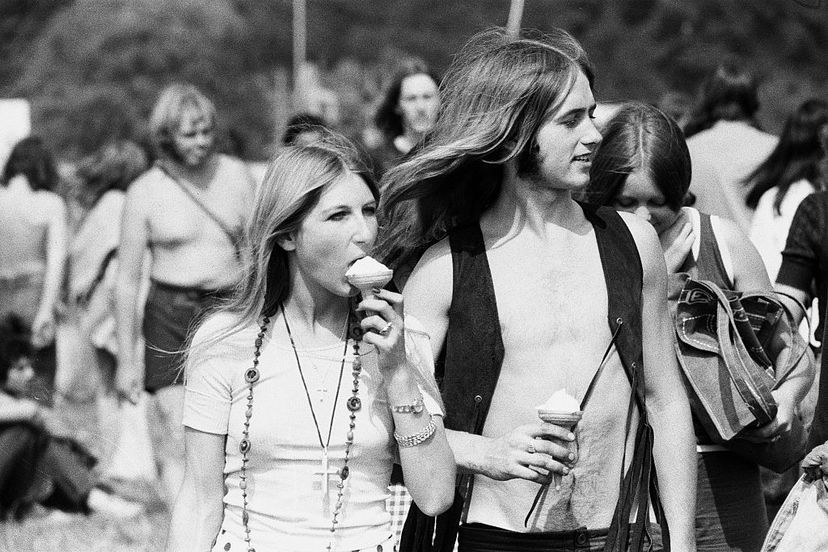 “American parents aren’t teaching today’s youth about healthy relationship strategies, so alternate forces are driving relationships. Hero Images/Getty Images
“American parents aren’t teaching today’s youth about healthy relationship strategies, so alternate forces are driving relationships. Hero Images/Getty Images
Kids these days, right? Every generation of teenagers has its detractors: adults who think the new batch is doing everything wrong in school, work, relationships. Much of the time, it’s a matter of adults simply forgetting what it’s like to be young and inexperienced.
But at this moment in U.S. history, the experience of being a teenager or a young adult is dramatically different than it’s ever been — and that’s due to an intersection of a number of cultural trends including parenting choices, media consumption and demographic shifts in higher education.
Relax About the Hookups
A new report published by Harvard University’s Making Caring Common Project shares the findings of a nationwide survey, as well as individual surveys collected from 18- to 25-year-olds in demographically diverse high schools and colleges around the U.S. They set out to understand more about what young people’s experiences building romantic relationships are like in the 21st century. Researchers found that high school and college students are developing habits around sex and romantic relationships differently than their parents did, and the troubles they’re facing are coming from a much different source than their elders probably assume.
Parents are often worried about "hookup culture," assuming that young people are having a bunch of promiscuous sex rather than settling down with just one romantic partner. The truth is, the problems facing young people in their romantic lives is much different — while it’s true they’re not finding a lot of success settling down, they’re not really doing much hooking up, either.
"We’re not saying the hookup culture doesn’t exist," says co-author Dr. Richard Weissbourd of Harvard’s Graduate School of Education, "we’re just saying it’s much smaller than people think it is."
According to current data from the Centers for Disease Control and Prevention, in 2011, only 27 percent of 18- to 19-year-olds had more than one sexual partner during the prior year, and only 8 percent had four or more sexual partners during that year. The number of high school students who are having sex for the first time is smaller than it was 15 years ago, and the number of college students having sex in the United States overall has also declined.
While this should comfort the parents who are worried about what their babies are doing at those teen sleepover bacchanals or college twerking parties, the study discovered two emerging trends that are more dangerous and concerning: While young people are having less sex than before, rates of misogyny and sexual harassment are alarmingly high. In the national survey, 87 percent of young women reported having been harassed in some way (which could mean anything from being catcalled to insulted with sexualized words), and 76 percent of survey respondents reported never having had a conversation with an adult about how to avoid harassing others.
Teach Your Children Well
The main source of these problems seems to be that parents and schools are doing a miserable job preparing young people for romantic love. Sex education focuses heavily on abstinence or disaster prevention, and the report finds that beyond the nuts and bolts of how sex works, parents not only model healthy relationship behavior less, but also seem increasingly uncomfortable having the conversation with their teens about the actual work that goes into how to have healthy, mature romantic relationships. So teenagers and young adults are learning from each other.
"You see in high schools and on college campuses this sort of ‘bros over hoes’ culture emerging now," says Weissbourd. "Partly what’s happened is that as girls and women are outperforming boys in school, outnumbering them in college, and outpacing them in work, men can control the terms of romantic and sexual relationships — particularly on college campuses — because there are fewer of them. So these cultures tend, in some ways, to be dominated by men’s interests and notions of sexuality and romance in ways that can be harmful."
 “People who were teenagers in the early ’70s and ’80s are the parents of today’s young adults, and a new study finds their relationship modeling (or lack thereof) has influenced a new generation.Sunday Mirror/Mirrorpix/Getty Images
“People who were teenagers in the early ’70s and ’80s are the parents of today’s young adults, and a new study finds their relationship modeling (or lack thereof) has influenced a new generation.Sunday Mirror/Mirrorpix/Getty Images
Which brings us to pornography. Because of Rule 34 of the internet — "If it exists, there’s porn of it" — the internet has brought pornography to everyone even mildly interested in finding it, which means exposure to porn often starts in middle school. According to Weissbourd, easily obtainable, increasingly hardcore porn has augmented an entire generation’s ideas about sex.
"There’s just a lot more porn watching than there used to be, and that can affect everyone’s ideas about sexual relationships — especially for men," he says.
According to the report, the good news is there’s a lot of room for improvement, so even a little bit of effort toward fixing these problems could make a big impact. For instance, the lack of communication about issues like misogyny, sexual consent and harassment has led to a society in which men have little empathy for women, but more than 70 percent of survey respondents reported wanting more guidance from their parents about how to navigate romantic relationships.
Almost half of the survey respondents believed there is no longer a double standard against women in U.S. society, and 39 percent of men stated they thought women weren’t sexualized on TV. This is the kind of misunderstanding that can be remedied by a little education.
"A high percentage of young people say they want to talk about relationships, and there are a lot of adults out there who have wisdom to share — even if they failed in their own relationships, the wisdom is there," says Weissbourd. "This is a wonderful place to start important conversations with young people about what love is, about the difference between love and attraction or infatuation, about how love changes over time, about how to be generous and self-respecting in relationships. We have to develop a culture wisdom about these things."
Now That’s Upsetting
According to the report, 60 percent of women and 73 percent of men either agreed with or didn’t oppose the idea that "the government and the media have shown more concern about sexual harassment and sexual assault than is warranted."



























